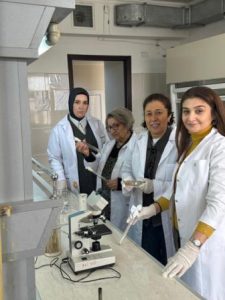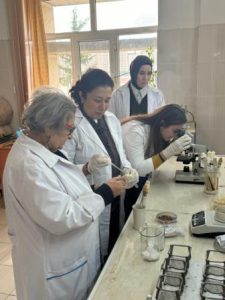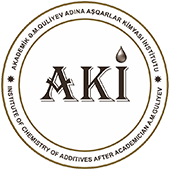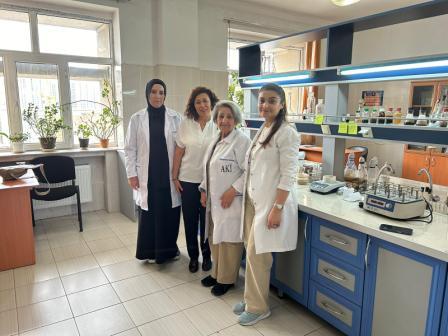It is known that the extraction, storage and transportation of oil is accompanied by accidents that cause environmental pollution and the destruction of many living organisms. Currently, chemicals are mainly used to clean up oil spills. However, the use of chemicals is ineffective for oil degradation, they accumulate in sediments and water, and also create secondary pollution, negatively affecting the flora and fauna of water and soil.
Recently, research has been conducted in a new and promising area to solve this problem, such as surface treatment with nanomaterials by microorganism cells. This approach, which combines bioremediation and nanotechnology methods, is called bionanoremediation.
Research on bioremediation of water and soil areas contaminated with various organic pollutants has been conducted for many years at academician A.Guliyev Institute of Chemistry of Additives. In February 2024, the project titled “Nano-enhanced Bioremediation of Oil Spills in Seawater and Soil Using Microorganism-Modified Core-Shell Magnetic Nanoparticles” developed by ICA in collaboration with Istanbul Technical University was selected for funding as part of the competition announced by ANAS-TUBITAK.
In October, the capabilities of both parties and the planned work on the project were discussed at a meeting organized with Turkish partners via Zoom. Today, research is being carried out in the direction of modifying the nanomaterial obtained from Istanbul Technical University with active hydrocarbon-oxidizing microorganisms isolated in the Laboratory of Cutting Fluid Compositions of the institute, studying the role of using nanomaterials in increasing the efficiency of bioremediation.
Also, within the framework of the project, a representative of the Turkish research group, Bika Pashayeva, visited our institute, got acquainted with the research and equipment carried out in the laboratory, assessed the capabilities of the laboratory and emphasized its importance for future cooperation. Then, at a meeting with the project leader, Professor Parvin Mammadova, and the research team, the work to be carried out in the first stage was discussed in detail once again.




